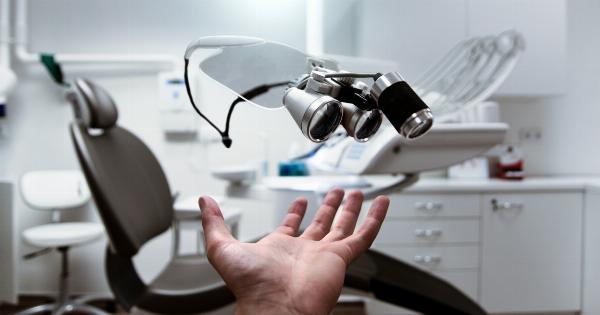Oral health is an essential aspect of overall health. The mouth is the gateway to the body, and poor oral hygiene can lead to numerous health problems.
In recent years, there has been a significant increase in research regarding the bio-science of oral health. The science behind oral health includes the study of the oral microbiome and the effects of oral health on systemic health. In this article, we will explore the bio-science of oral health and its significance.
The Importance of the Oral Microbiome
The oral microbiome is a community of microorganisms that reside in the mouth. It includes bacteria, fungi, and viruses. The microbiome is essential for maintaining oral health, and any disruption in its balance can have severe consequences.
The bacteria in the mouth play a crucial role in maintaining a healthy oral environment by producing organic acids that help to neutralize harmful substances and prevent tooth decay.
However, when there is an overgrowth of harmful bacteria, it can lead to gum disease, tooth decay, and bad breath.
Recent studies have shown that an imbalance in the oral microbiome can also have systemic effects on health by increasing the risk of heart disease, diabetes, and respiratory infections. Therefore, maintaining a healthy oral microbiome is crucial for overall health.
The Link Between Oral Health and Systemic Health
The mouth is not an isolated part of the body. Oral health is closely linked to systemic health, and poor oral hygiene can lead to numerous health problems.
Gum disease, for example, has been linked to an increased risk of heart disease, stroke, and diabetes. The bacteria that cause gum disease can enter the bloodstream and spread to other parts of the body, leading to inflammation and damage to blood vessels.
In addition, poor oral hygiene can also lead to respiratory infections such as pneumonia. The bacteria in the mouth can be aspirated into the lungs, leading to infection.
Maintaining good oral hygiene, including brushing and flossing regularly and visiting the dentist regularly, can help to prevent these systemic health problems.
The Importance of Saliva in Oral Health
Saliva, the fluid produced by the salivary glands, plays a crucial role in maintaining oral health. Saliva helps to neutralize acids produced by bacteria, remineralize tooth enamel, and wash away food particles and bacteria.
Saliva also contains antimicrobial agents that help to prevent the growth of harmful bacteria in the mouth.
However, certain medications and medical conditions can reduce saliva production, leading to dry mouth. Dry mouth can increase the risk of tooth decay, gum disease, and oral infections.
Therefore, it is essential to maintain good oral hygiene and visit the dentist regularly if you suffer from dry mouth.
The Effect of Diet on Oral Health
Diet plays a significant role in oral health. Sugary and acidic foods can lead to tooth decay and erosion of tooth enamel. Bacteria in the mouth can feed on sugar and produce acids that can erode tooth enamel and lead to cavities.
Acidic drinks such as soda and sports drinks can also erode tooth enamel, leading to sensitivity and tooth decay.
On the other hand, a diet rich in fruits and vegetables can help to maintain good oral health. Fruits and vegetables contain vitamins and minerals that help to strengthen tooth enamel and prevent gum disease.
Chewing sugar-free gum after meals can also help to stimulate saliva production, which can help to neutralize acids and wash away food particles.
The Role of Genetics in Oral Health
Genetics also plays a role in oral health. Some people are more prone to gum disease and tooth decay due to their genetic makeup.
Genetic testing can help to identify individuals who are at a higher risk of developing oral health problems, allowing for earlier intervention and treatment.
However, genetics is only one factor that contributes to oral health. Maintaining good oral hygiene and a healthy diet is still crucial for maintaining oral health, regardless of genetic predisposition.
The Importance of Regular Dental Visits
Regular dental visits are essential for maintaining good oral health. Dental cleanings can help to remove plaque and tartar buildup, which can lead to gum disease and tooth decay.
Regular dental exams can also help to identify oral health problems early, allowing for earlier intervention and treatment.
During dental exams, the dentist will check for signs of gum disease, tooth decay, oral cancer, and other oral health problems. They will also check for signs of systemic health problems, such as high blood pressure and diabetes.
Regular dental visits can help to maintain oral health and prevent systemic health problems.
The Bottom Line
The bio-science of oral health is an essential aspect of overall health. Maintaining good oral hygiene, eating a healthy diet, and visiting the dentist regularly are crucial for maintaining oral health and preventing systemic health problems.
Understanding the importance of the oral microbiome, the link between oral health and systemic health, the role of saliva, the effect of diet on oral health, and the role of genetics in oral health is vital for maintaining good oral health. By taking care of your oral health, you can improve your overall health and well-being.



























